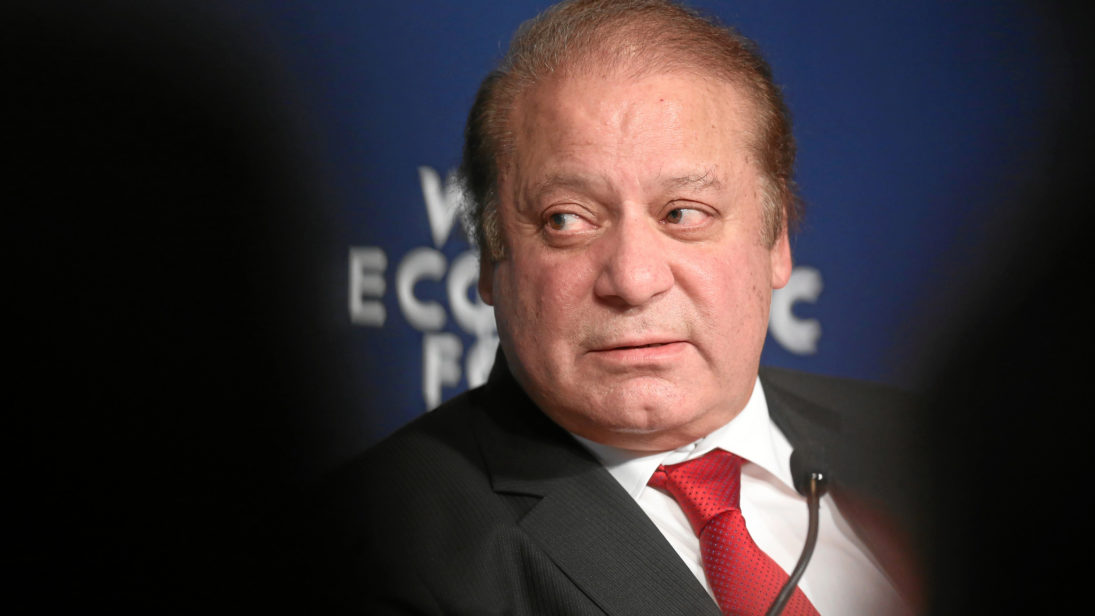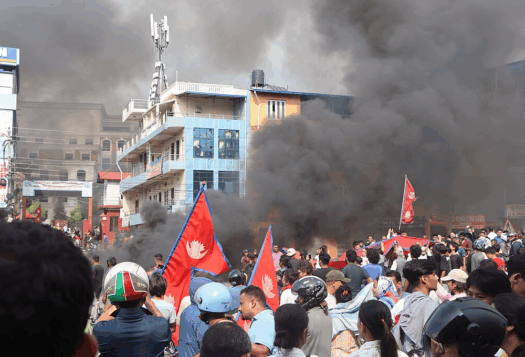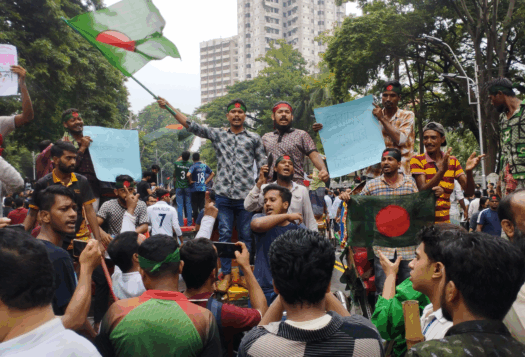
Rizwana Abbasi
The Supreme Court (SC) of Pakistan announced its final decision in the “Panama-gate” controversy involving Prime Minister Nawaz Sharif on July 28. The decision disqualified Sharif, leader of the powerful Pakistan Muslim League-Nawaz (PML-N) party, from holding the office of Prime Minister. Legally, Sharif was ousted for failing to be honest and truthful under Articles 62 and 63 of the Constitution. While the decision is a victory for rule of law, it is not a real victory against corruption. Yet, the present political turmoil may lead to the re-establishment of a more resilient political culture that protects civilian control.
The landmark decision has proven that even established political families like the Sharifs cannot buy off judges and the SC has reasserted its oversight over politicians who abuse public power. The decision also provides hope that an empowered system of checks and balances will ensure justice, not leaks of incriminating documents.
However, the verdict does create tremendous uncertainty for Sharif’s political party, which may have been brutally damaged in the Panama Papers investigation. Sharif’s resignation should not disrupt the democratic process in Pakistan, however, as power will remain under civilian control in the hands of PML-N. Sharif’s younger brother, Shahbaz, has been selected as Sharif’s eventual successor. As the current Chief Minister of Punjab, Shahbaz is a seasoned leader capable of filling the void created by the SC verdict. Indeed, given Shahbaz’s considerable influence in Punjab, the most populous state in Pakistan, there is favorable chance that PML-N may win another majority in the 2018 general elections.
From a foreign policy perspective, the ramifications of Sharif’s ouster are less hopeful. As Prime Minister, Sharif failed to grapple with regional and global complexities, particularly faltering in his attempt to improve ties with India. The trajectory of Pakistan-India dialogues has been consistently trending downwards given border skirmishes along the Line of Control, ongoing unrest in Kashmir, and the death penalty conviction of Kulbhushan Jadhav, an Indian national charged with espionage and terrorism by a Pakistan military court. Restoration of the peace process with India should be top priority for Shahbaz and PML-N leadership.
Conversely, China-Pakistan ties should not be greatly affected by Sharif’s exit. While Sharif championed the China-Pakistan Economic Corridor (CPEC), which is considered an integral part of China’s One Belt One Road initiative, other PML-N leaders are willing to pick up the baton to see the massive infrastructure project to fruition. These leaders include Ahsan Iqbal, the Minister of Planning and Development. Chinese Foreign Ministry Spokesperson, Lu Kang, also stated that Sharif’s disqualification would not disrupt progress towards CPEC.
Finally, what does the ouster mean for U.S.-Pakistan relations? The U.S. State Department carefully noted that it hoped for a smooth transition in Pakistan, a statement in line with a larger U.S. effort to mend its ties with Islamabad, which is still considered a critical partner on counter-terrorism and stability in Afghanistan. However, the fundamental challenges of U.S.-Pakistan ties remain given growing Indo-American and China-Pakistan partnerships. The drift will likely persist for the time being as the United States pressures Pakistan to reaffirm its support for counterterrorism efforts against the Haqqani network and ensuring that terrorist networks based in Pakistan have been dismantled.
In sum, Pakistan’s internal and external politics do not solely depend on the fate of Nawaz Sharif. It is now up to the newly-selected leader of PML-N to re-establish legitimacy and prove both internal and external critics wrong by preserving civilian supremacy, improving the economy, and advancing Pakistan’s foreign policy interests regionally and internationally.
Muhammad Saqib Tanveer
The much-awaited Panama Papers verdict is out. Prime Minister Nawaz Sharif has been sent packing. The Supreme Court has held the powerful accountable. Pakistan is rid of corruption, of which Sharif was the epitome. Seeing Sharif’s back must mean that corrupt will finally be held accountable in the land of the pure. Welcome to Naya Pakistan (New Pakistan), opposition leader Imran Khan pronounced. But is this the case?
The Supreme Court’s Joint Investigation Team (JIT)—which consisted of representatives from Inter-Services Intelligence (ISI), Military Intelligence, the Federal Investigation Agency, National Accountability Bureau, Securities and Exchange Commission, and the Bank of Pakistan—was tasked with probing corruption charges against Sharif but ultimately the JIT returned with no conclusive evidence. All charges of corruption against Sharif were sent to the National Accountability Bureau for further investigation. Sharif’s actual disqualification from the office of Prime Minister resulted from his failure declare a salary from his son’s company, which, incidentally, he never seemed to receive.
Thus, the Panama Papers scandal was a classic power struggle à la Game of Thrones. All those who had an axe to grind with Sharif used this case to settle scores and cut the Prime Minister to size. It was Nawaz against Imran Khan; Nawaz versus the military establishment; Nawaz versus the Gulf Cooperation Council. On the defensive on so many fronts, Sharif’s demise was in the cards.
Imran Khan
As opposition leader and head of the second largest political party of Pakistan, Imran Khan was the beleaguered Prime Minister’s natural opponent. After the Panama Papers revelations in April of last year, it was Imran Khan who launched a campaign against Sharif, raising issue with the offshore companies owned by Sharif’s sons.
Sharif versus Khan is a healthy democratic rivalry. Khan had to attempt to bring down Sharif for his own political gain. Ongoing energy projects and initiatives related to the China-Pakistan Economic Corridor (CPEC) are scheduled for completion before the 2018 general elections. In order to ensure Sharif did not benefit from the successful completion of these projects, Khan had to disrupt Sharif’s path to the election.
As it turned out, Khan was ultimately just a proxy. The real string-pullers operated elsewhere.
Army Establishment
Whenever Sharif attempted to flex his muscles as Prime Minister, he was often cut down to size by the military establishment. Assuming office in May 2013, Sharif sought to assume control of Pakistan’s foreign policy affairs, particularly with regards to reconciliation with India. He also attempted to hold former General Pervez Musharraf accountable for Musharraf’s suspension of the Constitution in 2007 but was never allowed to do so given strong objections from the Pakistan Army, which ultimately assisted in Musharraf’s departure from Pakistan.
The composition of the JIT also speaks to the military’s involvement in the Panama affair. The six-person panel included two members from military institutions and the ISI controlled all secretarial affairs for the commission. The Sharif family also filed a complaint that the ISI was tapping phones and surveilling witnesses throughout the investigation. While the Army always maintained its distance from the JIT, its spokesperson recently praised JIT representatives.
Gulf Cooperation Council Countries
Sharif’s dealings with Gulf Cooperation Council countries, and Saudi Arabia, in particular, may have further accelerated his demise. Two of Sharif’s major foreign policy decisions had negative repercussions for the Saudi kingdom. The first was the Prime Minister’s refusal, with parliamentary support, to aid Saudi Arabia in its fight against Houthi rebels in Yemen. The second was Sharif’s neutrality when it came to the blockade of Qatar.
These actions were somewhat surprising given Sharif’s previous history with the Saudis. When Sharif was imprisoned in 2001 under the Musharraf regime, the Saudis negotiated his release and the Sharif family spent a good part of their exile at Saroor Palace in Saudi Arabia as state guests. The Saudis and UAE may have ultimately settled the score, however, when the UAE government failed to verify the Sharif family’s business activities in the country. In fact, the fatal document in the investigation was provided by the UAE government.
An examination of the context surrounding Sharif’s ouster indicates the investigation was never solely about corruption. It was about neutralizing a potential political giant serving an unprecedented third term. It was about regional interests. And it was about the military’s reassertion of itself as the traditional power center in Pakistani politics.
***


